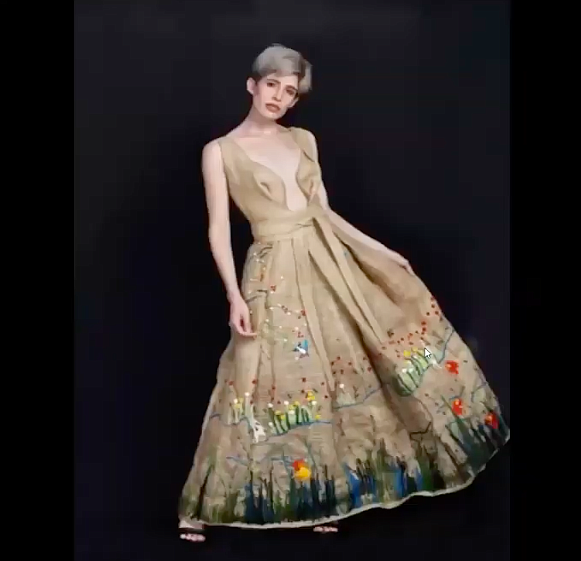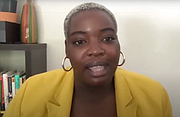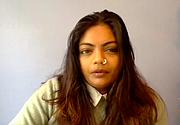MANUFACTURING
Sustainable Fashion Forum’s Frank Talk on Diversity and Environment
Fashiondex, a New York–headquartered source-book publisher and consulting company, recently produced a series of Sustainable Fashion Forum panel discussions at the Oct. 7–9 virtual edition of the LA Textile trade show called CMC Uploaded. The goal of the panel was to keep issues of sustainability and diversity in the fashion industry top of mind for professionals in the business.
Panelists urged the fashion industry to maintain a serious approach regarding issues surrounding diversity. Valerie Equavoen, founder of the On A Curve platform, which advocates for diversity in creative businesses, said broken promises by companies that expressed intentions for continued support of social-justice causes have left many skeptical. Companies had expressed support for Black Lives Matter after the murder of George Floyd but still have not changed their business practices to align with their initial publicly made statements and connection, she said.
“There were no Black people on leadership teams at brands. We’ve heard complaints from Black employees about micro aggressions, about the lack of pay, about the discrepancy with the way they are treated,” she said. “It’s one thing for a brand to say externally we condemn all of these societal injustices about racism and look at our diverse marketing campaign; it’s another thing to have that be a practice. Brands can do that by changing the people in their company.”
At another panel, designers and sustainability directors talked about sustainable sourcing and reducing their carbon footprints. For Annie Agle, director of impact and brand for Cotopaxi, an outdoor-gear company organized as a benefit corporation, an important facet of her mission was relying on sourcing options derived from repurposed fabrics.
“We know that 90 percent of our carbon footprint of any piece of apparel we produce is created before the product is cut and sewn, which means the raw material you work with is probably the most critical sustainability decision you make when designing a product,” she said.
Julie Verdugo, director of sustainability and social impact at the Free People brand, said making the best sustainability decisions comes with working with the right partners. “You have to have the humility to say, look, we’re trying to be better and we want a better solution,” Verdugo said, “so our design and sourcing teams can go to those partners and say, here’s exactly what we’re looking for and approach them with humility.”
Runa Ray, creative head and founder of the Runa Ray brand, said that she strives for circularity when she sources fabrics. “I believe in using natural fabrics. For me it’s about giving back to the soil so it gets to be fertile and goes back into being a crop,” she said. “The other important thing in sustainability when developing a product is how easy is it going to be for me to dismantle for recycling.”
























